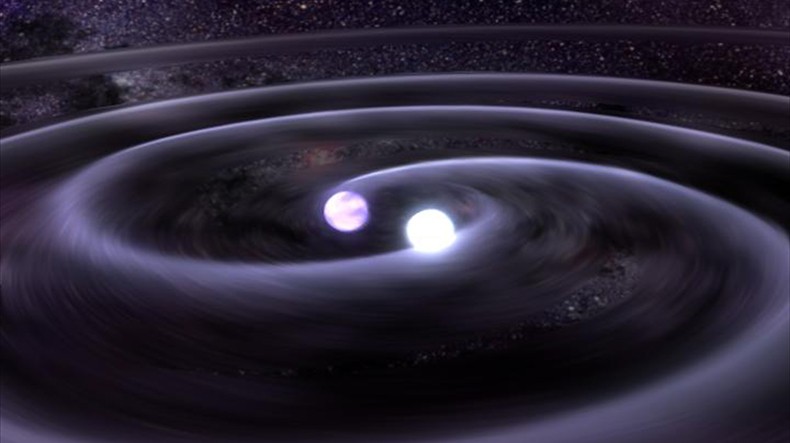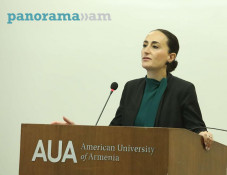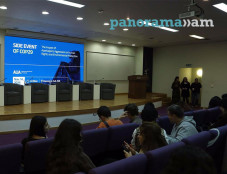
Scientists prove theory about gravitational waves predicted by Einstein 100 years ago
Just over 100 years after Albert Einstein published his general theory of relativity, scientists have found what Albert Einstein predicted as part of the theory: gravitational waves, CNN reports .
"We have detected gravitational waves. We did it," said David Reitze, executive director of LIGO, the Laser Interferometer Gravitational-Wave Observatory, which was created to do just what Reitze announced. The gravitational waves -- ripples in space-time -- were created by the merging of two black holes, Reitze said. More than a billion years ago -- LIGO estimates about 1.3 billion -- the two collided at half the speed of light. Gravitational waves pass through everything, so the result traveled through the universe for that time before reaching Earth, according to CNN.
However, the waves are so small that it takes a detector like LIGO, capable of measuring distortions one-thousandth the size of a proton, to observe them. They were observed on September 14, 2015. LIGO is described as "a system of two identical detectors" -- one located in Livingston, Louisiana, the other in Hanford, Washington -- "carefully constructed to detect incredibly tiny vibrations from passing gravitational waves." The project was created by scientists from Caltech and MIT and funded by the National Science Foundation, CNN reports.
Szabolcs Marka, a physicist at Columbia University who is leader of the LIGO member Columbia Experimental Gravity Group, said you could think of it as "a cosmic microphone."
CNN notes that gravitational waves were predicted by Einstein in his general theory of relativity in 1915, the theory that proposed space-time as a concept. The waves are a distortion of space-time. However, in order for us to detect them, they needed to be created by a mammoth event -- for example, the collision of two black holes. Black holes are a holy grail of the gravitational wave concept. To date, we had been able only to see their aftereffects. Black holes themselves were a conjecture.
"What's really exciting is what comes next," said Reitze at the announcement as cited by CNN. "I think we're opening a window on the universe -- a window of gravitational wave astronomy."
"A physicist is always looking for a flaw in a theory. And the only way to find a flaw is to test it," Columbia University physicist Marka, who's been working on the project for more than a decade, told CNN. "Einstein's theory did not present any flaws to us yet, and that is really scary. Physicists are very (skeptical) of flawless theories because then we have nothing to do."
Ironically, Einstein didn't think gravitational waves would be discovered.
"He thought gravitational waves are a beautiful construct, but they are so small nobody would ever be able to actually measure it," said Marka.
Newsfeed
Videos






























